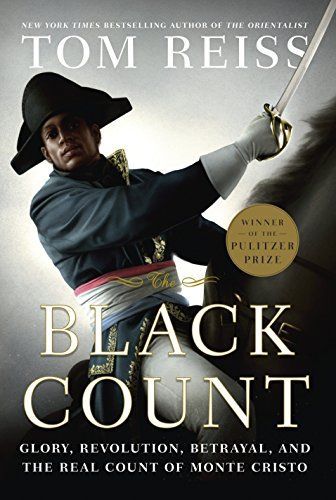
The Black Count Glory, revolution, betrayal and the real Count of Monte Cristo
WINNER OF THE PULITZER PRIZE FOR BIOGRAPHY 2013 ‘Completely absorbing’ Amanda Foreman 'Enthralling’ Guardian ‘The Three Musketeers! The Count of Monte Cristo! The stories of course are fiction. But here a prize-winning author shows us that the inspiration for the swashbuckling stories was, in fact, Dumas’s own father, Alex - the son of a marquis and a black slave... He achieved a giddy ascent from private in the Dragoons to the rank of general; an outsider who had grown up among slaves, he was all for Liberty and Equality. Alex Dumas was the stuff of legend’ Daily Mail So how did such this extraordinary man get erased by history? Why are there no statues of ‘Monsieur Humanity’ as his troops called him? The Black Count uncovers what happened and the role Napoleon played in Dumas’s downfall. By walking the same ground as Dumas - from Haiti to the Pyramids, Paris to the prison cell at Taranto – Reiss, like the novelist before him, triumphantly resurrects this forgotten hero. ‘Entrances from first to last. Dumas the novelist would be proud’ Independent ‘Brilliant’ Glasgow Herald
Reviews
altlovesbooks@altlovesbooks
rumbledethumps@rumbledethumps
Jason Porterfield@katzenpatsy
Jeni Enjaian@jenienjaian
Bryan Alexander@bryanalexander
Abby T. Miller@hairboat
Alisha @theawardshow
Jane McCullough@janemccullough
Emily K McCullar@mccullarmebad
Allison Francis@library_of_ally
Moray Lyle McIntosh@bookish_arcadia
Lloyd Dalton@daltonlp
Frederik Trojaborg Grunwald Julian@frederikjulian
Anna Pinto@ladyars